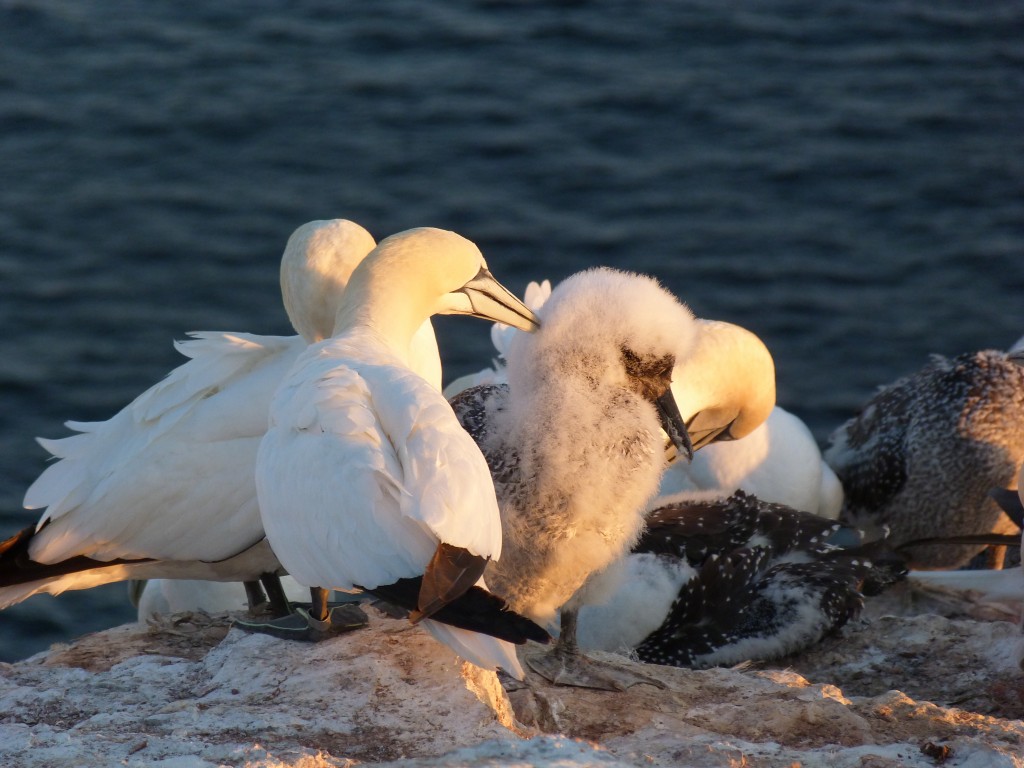Bangkok, Doha – Countdown on for this year’s UN climate talks
What are these gannets doing on the ice blog? Well, it seems they migrated to Germany because of climate change. Read below to understand the connection. (No wisdom without pain…)
Did you know there has just been another round of UN climate talks in Bangkok? I don’t blame you if you didn’t. It’s hard to keep track of the “talks between the talks…” It’s also hard to keep up interest and optimism and not give way to resignation, given the disastrous melting of the Arctic ice and all the other clearly visible impacts of climate change.
I’ve been working on a story on how climate change is affecting the North Sea, (listen on this week’s Living Planet). Off the coast of the German island of Helgoland, the water has heated up by 1.7. degrees in the last 50 years. As the head of the island’s Biological Institute, run by the Alfred Wegener Institut, Prof. Karen Wiltshire said to me in an interview, it takes an awful lot of energy to heat up that much water by so much. And climate change isn’t only changing the temperature. Altered wind patterns and ocean currents have brought large amounts of very salty and very clear water to this part of the North Sea. Now as for those beautiful gannets with the fluffly chicks…The bird experts say the 300 pairs of gannets now breeding on Helgoland came over from Scotland because it’s easier to fish now that the increased Atlantic inflow has brought all this amazingly clear water over here.
Meanwhile, in Bangkok, the negotiators keep trying to come up with moves to reduce emissions and make progress towards the increasingly unattainable goal of limiting global warming to 2 degrees C. The Bangkok meeting was the last informal round to prepare this year’s talks in Qatar at the end of November. The UN climate chief Christina Figueres was quoted as saying they made some real progress: “There are still some tough political decisions ahead, but we now have a positive momentum and a greater sense of convergence that will stimulate higher-level political discussions ahead of Doha and set a faster pace of work once this year’s conference begins,” she said. Of course she would say that, you might think. But ngos like Germanwatch agree that technical progress was made towards preparing a post-Kyoto document and making adaptation funding for developing countries become reality. Their climate expert Sven Harmeling thinks the mood has lifted somewhat. But – and here he agrees with Figueres – the next step is up to the politicians. Ministers will have their own rounds of informal meetings in New York und Korea ahead of the Doha summit. What will they be able to deliver by the end of the year? Does this thought inspire confidence?
















